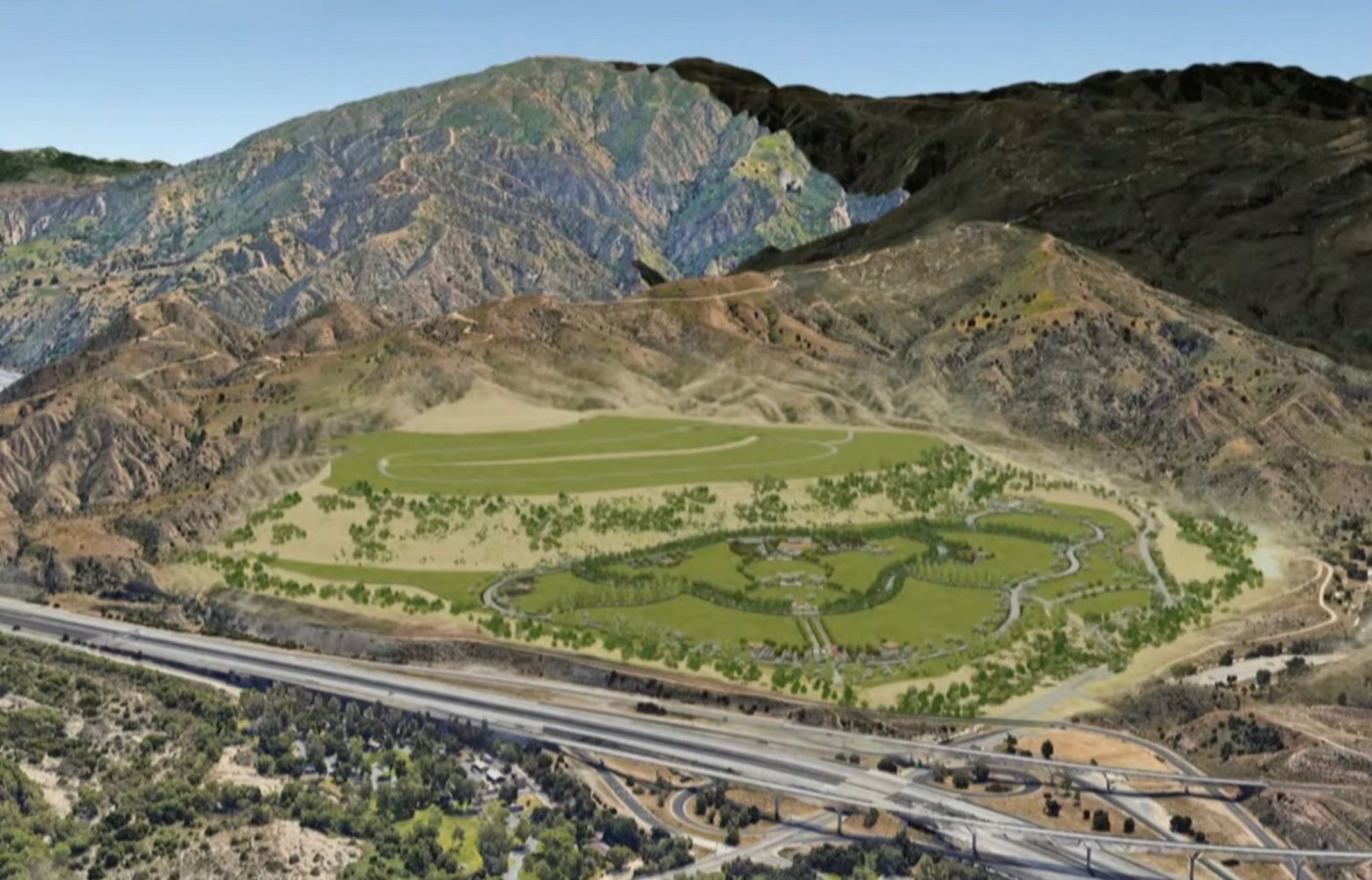Legislators hope to fast-track a veterans cemetery planned for Anaheim Hill’s Gypsum Canyon, giving strong support to a bill last week that exempts the project from further review under California’s landmark environmental protection law.
The Assembly passed the bill last week from Assemblymember Sharon Quirk-Silva, D-Fullerton, that exempts the Southern California Veterans Cemetery from additional CEQA review.
The idea is to streamline the project and avoid additional lawsuits — a group that wants to see a veterans cemetery built in Irvine instead sued last year in an attempt to block the Gypsum Canyon project, citing California’s environmental law — that could delay or nullify the project, according to a fact sheet for the bill.
“After years of advocating for the Southern California Veterans Cemetery, AB 571 is the crucial tool we need to deliver on a promise we owe to our veterans and their families,” Quirk-Silva said in the bill analysis. “This cemetery will be their final resting place, a place of honor and dignity.”
“The time has come for Orange County to be home to the heroes who defended our country,” she added. “We cannot afford to delay any longer.”
Plans for the first veterans cemetery in Orange County have been in the works for over a decade, overcoming concerns about funding and efforts to develop a veterans cemetery in Irvine.
Anaheim’s City Council unanimously approved plans in July 2024 to allow a 283-acre plot in Anaheim Hills to be split into two cemeteries: one for veterans and the other part of the Orange County Cemetery District.
Orange County is the largest county in California without a veterans cemetery.
And the county isn’t pre-selling casket spaces right now since there are so few left; that won’t change until the public cemetery in Anaheim Hills opens.
The veterans cemetery is deeply personal for Quirk-Silva, who has worked on the project since she was first elected to the Assembly in 2012.
She also has family who have served in the U.S. Air Force, Army and Marines, she said during a committee hearing last month, and is the daughter of a Korean War veteran.
The bill is co-sponsored by all of Orange County’s Assembly members: Phillip Chen, R-Yorba Linda; Laurie Davies, R-Laguna Niguel; Diane Dixon, R-Newport Beach; Blanca Pacheco, D-Downey; Cottie Petrie-Norris, D-Irvine; Kate Sanchez, R-Rancho Santa Margarita; Tri Ta, R-Westminster; and Avelino Valencia, D-Anaheim.
The bipartisan nature of the bill is “meaningful,” said Quirk-Silva.
“Too often on this floor, we know that there are divisions. We know that we don’t all agree, and sometimes we bitterly disagree, and yet we have to find places where we can agree,” she said in a recent floor speech. “And simply honoring our veterans, those who have served, and finding a final resting place in Southern California is certainly something that I’m proud to acknowledge these members here as co-authors.”

California’s legislature has exempted other projects deemed to provide significant public benefits from CEQA review, including sports arenas and housing developments, the bill’s fact sheet noted — at least 14 since 2011.
No Assembly members voted against AB 571 when it was on the floor last week, although four members did not vote. That included Dixon, who was not in Sacramento when the vote occurred.
The bill is now in the Senate.
In other news
• There’s a new select committee in the Assembly, and it’s studying alternative protein innovation.
“The focus of this committee is not just about fostering a vibrant alternative protein research and economy in California, but also putting forth climate solutions in our food systems,” said Assemblymember Ash Kalra, D-San José, who was appointed chair of the new group.
Alternative protein — which includes cell- and plant-based foods that replace those from animals — can help the environment and meet a growing demand for protein, Kalra’s office said.
“Our state is a leader in alternative protein innovation and home to the first major plant-based protein companies, the first-ever cultivated meat startups and numerous inventive fermentation food companies,” Kalra said. “I look forward to holding informational hearings on the topic of growing this new economy and how it can support California’s climate and food sustainability goals.”
• A bipartisan group of legislators told Congress they were concerned about efforts included in the recently passed tax breaks and spending cuts bill to place a 10-year moratorium on state-level regulation of artificial intelligence.
The letter expresses concern that the moratorium infringes on states’ sovereignty and would jeopardize public safety and California’s efforts to foster innovation while protecting consumers in the AI space.
“A decade-long, blanket prohibition on all state regulation of this expansive and emergent technology is reckless, unnecessary and likely unconstitutional,” the letter said.
It was led by Assemblymember Rebecca Bauer-Kahan, D-Orinda, and signed by Orange County’s Sen. Tom Umberg, D-Santa Ana, as well as Assemblymembers Pacheco, Petrie-Norris and Valencia.
The spending bill still needs to get Senate approval, and there is thought that the upper chamber could strip the AI provision because of something called the “Byrd rule,” which restricts “extraneous matter” from reconciliation bills.
